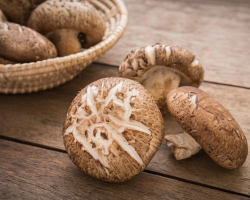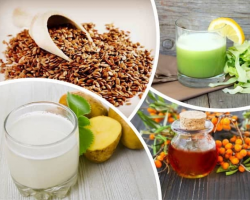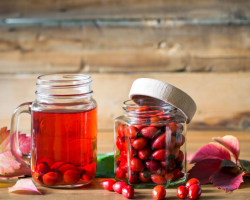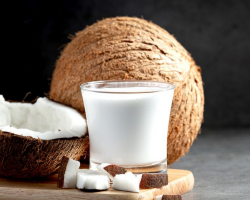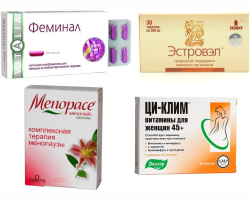Symptoms of colds are always unpleasant. Read the article that it can aggravate them.
Content
- Cold, flu: how are they developing?
- 7 things that exacerbate the symptoms of colds: which is better not to do?
- Reception of antibiotics with colds
- Labor lack: the reason that enhances the symptoms of a cold
- Dehydration: water helps to prevent symptoms of colds
- Vitamin C abuse: exacerbates the symptoms of a cold
- Low temperature fighting: symptoms of colds will manifest itself even more
- Refusal of food when the first symptoms of a cold appear
- Drinking alcohol: it is forbidden to do when the first symptoms of a cold appear
- Video: How to overcome the symptoms of colds in 24 hours?
- Video: How to quickly cure a cold and influenza?
- Video: Medicines for the prevention of SARS and the treatment of colds
When your throat hurts, headaches occur, the nasal sinuses are clogged, and you often sneeze, it can be symptoms of colds or even influenza. Then it is worth taking care of the body so as not to worsen the course of infection, but to increase immunity and recover faster.
On the site iherb There are high -quality natural drugs for colds. Here is a link to the section with drugs zinc, dietary supplements with an elderberry, forest berries and other ingredients to increase immunity. These are natural capsules that will help the body fight a cold, flu and even coronavirus.
From this article you will learn what is better not to do so as not to aggravate the symptoms of a cold. Read further.
Cold, flu: how are they developing?

Respiratory infections are so common that most adults are infected by them at least twice a year. In children, they develop much more often, even 7-10 times a year. Both a cold and the flu are called, at least 200 types of viruses. Since they give similar symptoms, and their type and severity is an individual issue, it is usually difficult to make an accurate diagnosis. How do cold and flu develop?
- The cold is usually less strong, lasts shorter, and the symptoms appear gradually. In most cases, they can be cured without visiting a doctor within 7-10 days.
- On the other hand, the flu can develop within 3-6 hoursIt lasts longer, and infections are often accompanied by fever, chills and muscle pain. Possible complications after influenza include inflammation of the nasal sinuses, middle ear and bronchitis, as well as the lungs, heart muscle and brain membranes.
Therefore, with any infection of the respiratory system, one should show a special care of your body in order to quickly support its defenses and avoid serious complications.
IMPORTANT: It happens that the symptoms of infections do not pass within three weeks or they suddenly worsen. If you have a high temperature (above 38 ° C), or you feel the fever and chills, or experience sudden shortness of breathing, or chest pain, see a doctor urgently.
You should not self -medicate in diabetes, diseases of the heart, lungs, kidneys, nervous system or a weakened immune system. However, you can always take the appropriate steps in order to quickly return to the form.
7 things that exacerbate the symptoms of colds: which is better not to do?
Experts emphasize the importance of the seven most important habits and warn against typical mistakes that worsen the symptoms of colds or influenza. What are these errors? Below we described 7 things that exacerbate the symptoms of a cold. Further, it is described that it is better not to do.
Reception of antibiotics with colds
A cold and influenza are viral infections, so antibiotics do not affect them - they are effective only against bacteria. Bacterial infections usually occur as a result of viral infections and make up a small percentage of cases.
- Reception of antibiotics remaining after the previous treatment, or even regularly prescribed by a doctor, can harm the body, worsen its condition and slow down the recovery process.
- Antibiotics destroy the useful intestinal microflora, on which the functioning of the immune system largely depends.
- Taking these drugs limits the assimilation of important nutrients that contribute to health strengthening, and has many side effects, such as nausea, abdominal pain, diarrhea or skin rash.
On the other hand, probiotics, that is, specially selected bacteria that have the ability to colonize the intestines and have a beneficial effect on the body, can work perfectly in the struggle against infection. With preventive administration, they help to get sick less often, and with infection they reduce unwanted symptoms, such as cough, runny nose and heat, and slightly reduce the duration of the disease.
Labor lack: the reason that enhances the symptoms of a cold

Symptoms of developing infection, as well as a drop in energy and mood, make us limit activity. Unfortunately, many people ignore these signals and go to work or to school, despite the fact that they are sick. Meanwhile, ignoring the infection can not only worsen and extend its course, but also lead to complications (and infection of others). Therefore, another reason that enhances the symptoms of a cold is a lack of rest.
Even if the human body manages to function normally on the first day, this is usually impossible later. Therefore, instead of counting on miracles, it is worth providing optimal conditions for recovery - rest in warmth and good sleep. It was proved that the number and quality of sleep have a decisive influence on our immune system.
Dehydration: water helps to prevent symptoms of colds
Adequate hydration of the body can facilitate and even prevent the symptoms of colds, including: reduce nasal congestion and irritation of the mucous membranes. On the other hand, dehydration of the body exacerbates the symptoms of infection - it can thicken the discharge in the nose or respiratory tract, enhance headaches and cause malaise. Tips:
- Loss of water favors an increase in body temperature, severe sweating and a runny nose. Therefore, you need to drink more when you are sick.
- It is best to use clean water, freshly squeezed juices, tea or home chicken or vegetable broth, in quantity at least 3 liters per day.
- Broths, fruit drinks and juices are a good source of nutrient amino acids.
Warm and slightly sweet drinks are especially recommended (for example, with honey), because they stimulate the production of saliva and moisturize the mucous membranes to the greatest extent.
Vitamin C abuse: exacerbates the symptoms of a cold
Reception vitamin C. It is usually very important in the treatment of colds. However, with a developed infection, it, unfortunately, does not work more effective than placebo. Therefore, you should not abuse this antioxidant. On the other hand, with daily use as a prevention, this substance can only slightly reduce the duration of the disease and slightly reduce the severity of the symptoms.
- Although adequate consumption of this vitamin antioxidant is important for the immune system.
- Its direct influence on susceptibility to infection was registered mainly in people who intensively train, especially at low temperatures.
- Reception vitamin C in 2-3 weeks to the marathon, skiing or going to the mountains, can reduce the risk of cold 50 percent.
- However, if we take large doses vitamin C. For the prevention or treatment of infections, we can harm ourselves.
- He exacerbates the symptoms of a cold. While the daily need for it is about 100 mg, popular drugs contain up to 1000 mg or more.
It is worth knowing: The body does not store this substance, and the excess is excreted by the kidneys. Its large amount can lead to the appearance of painful stones in the kidneys and irritation of the digestive system, causing diarrhea, gases and colic.
However, there is an important nutrient with antioxidant properties that helps to heal the cold - this is zinc. It prevents the reproduction of viruses in the body and, thus, can reduce the duration of the disease and reduce the severity of its symptoms. This substance is especially effective if you start taking an infection on the first day. It is best to take it in the form of loafers. However, zinc should not be abused or used for too long, not to mention the preventive administration, because an excess of zinc can be very harmful to the body.
Low temperature fighting: symptoms of colds will manifest itself even more

A cold is not always accompanied by an increase in body temperature. But when the temperature exceeds 37 ° C., many people reflexively stretch to antipyretic drugs. The fight against reduced indicators begins. This is an integral component of popular products from colds, sometimes not only painkillers, but also anti -inflammatory.
However, if the temperature not higher than 38 ° C, and additional symptoms of infection are not too strong, it is better not to reduce it. From this, the symptoms of colds will manifest itself even more. Why?
- The fever is caused not by viruses, but by the immune system.
- The elevated temperature allows him to more effectively fight infections.
So, if the subfebrile temperature is tolerant, you should survive and wait out this moment.
Refusal of food when the first symptoms of a cold appear
Often, when the first symptoms of a cold appear, a person begins to refuse food. Although the infection is usually accompanied by a decrease in appetite, it is worthwhile to overcome this feeling and regularly maintain the body with doses of energy and ingredients that stimulate the immune system (vegetables, fruits).
Unlike bacterial infections in which starvation is more effective, when infected with viruses, it is important to take food regularly. It is worth consuming plant products, especially fruits and vegetables - if not raw, then in the form of homemade soups, freshly squeezed juices or cocktails. In addition to valuable vitamins, they also contain other ingredients necessary for the functioning of leukocytes. There are fiber and sugarids in plant foods that feed the protective microflora of the intestine. It is also recommended to use sea fish, which in addition to anti -inflammatory Omega -3 fatty acids Contains zinc and vitamin D.
Drinking alcohol: it is forbidden to do when the first symptoms of a cold appear

Home remedies for colds often include an ingredient such as strong alcoholic drinks. In addition, many people resort to drinking hot mulled wine at once, as they felt malaise, a runny nose appeared or throat fell ill. But drinking alcohol in any quantity is prohibited when the symptoms of colds appear.
- Alcohol warms the body, but when consumed in case of infection, it can worsen the course.
- This causes the expansion of blood vessels, which helps the body cool quickly.
- Alcohol interacts with many drugs and can enhance the effect of some of them, which can lead to an overdose or insufficient effect.
Such combinations cause a load on the liver and can cause malaise, drowsiness and dizziness. Alcohol also has a dehydration, disrupts the balance of intestinal microflora and, above all, weakens immunity. It not only reduces the level of antioxidants in the lungs, but also changes the epithelium and alveoli, violates the production and function of lymphocytes, as well as the functioning of many mechanisms related to the immune response. Therefore, with colds, it is best to refuse alcohol and warm up with warm drinks - tea, compote, etc.
Video: How to overcome the symptoms of colds in 24 hours?
Video: How to quickly cure a cold and influenza?
Video: Medicines for the prevention of SARS and the treatment of colds
Read on the topic:


